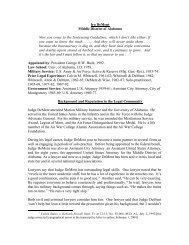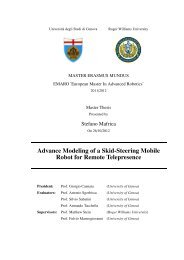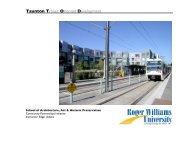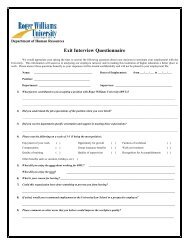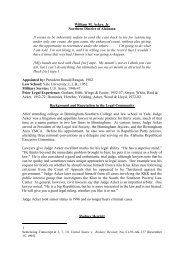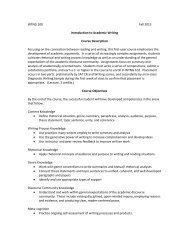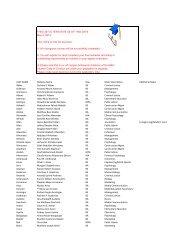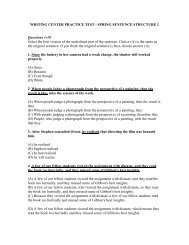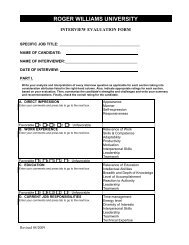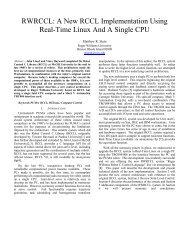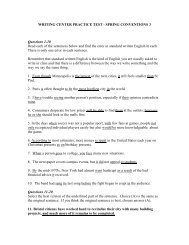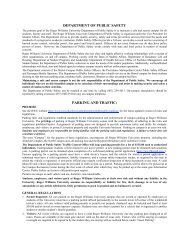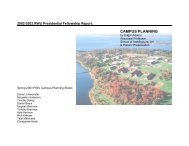SECCM Assessment Plan - Roger Williams University
SECCM Assessment Plan - Roger Williams University
SECCM Assessment Plan - Roger Williams University
You also want an ePaper? Increase the reach of your titles
YUMPU automatically turns print PDFs into web optimized ePapers that Google loves.
Section<br />
2<br />
<strong>Assessment</strong> <strong>Plan</strong> for the Engineering Program<br />
Introduction<br />
The Engineering Program is founded on an educational philosophy that encourages exploration and<br />
discovery. Students study the art of engineering in an environment unconstrained by disciplinary<br />
restrictions and that focuses on the development of the “whole” person. While designed to develop<br />
the essential knowledge, skills and abilities needed for professional practice or graduate study, the<br />
curricular structure of the program, coupled with the strong influence of the liberal arts (as evidenced<br />
by the core curriculum) equips our graduates with a “holistic” educational experience that is designed<br />
to prepare graduates to succeed in a world marked by rapidly increasing technology, growing<br />
complexity and globalization.<br />
The engineering program is designed to encompass six functional categories of courses:<br />
• General engineering<br />
• Basic mathematics and science<br />
• Engineering proficiency<br />
• Professional development<br />
• Advanced mathematics<br />
• Core education.<br />
Each of these categories provides the student with an essential component of their overall<br />
educational experience and, in sum, ensure that students are prepared for engineering practice as<br />
required by our accrediting body.<br />
Curricular Functional Design<br />
As discussed above, the engineering curriculum is designed around six functional categories of<br />
courses. Each of these functional categories is discussed below.<br />
1. General Engineering<br />
These courses are common to most undergraduate engineering programs. They provide the<br />
introduction to the fundamental principles and relationships that define the domain of<br />
engineering. These courses complement and build upon the mathematics and basic sciences<br />
presented in previous and concurrent instruction. In short, they provide the foundation for<br />
further study that leads to professional expertise. The courses included in this category are a<br />
required part of the curriculum for all Engineering majors. Table 2.1, General Engineering<br />
Courses, lists the courses in this category.<br />
15



